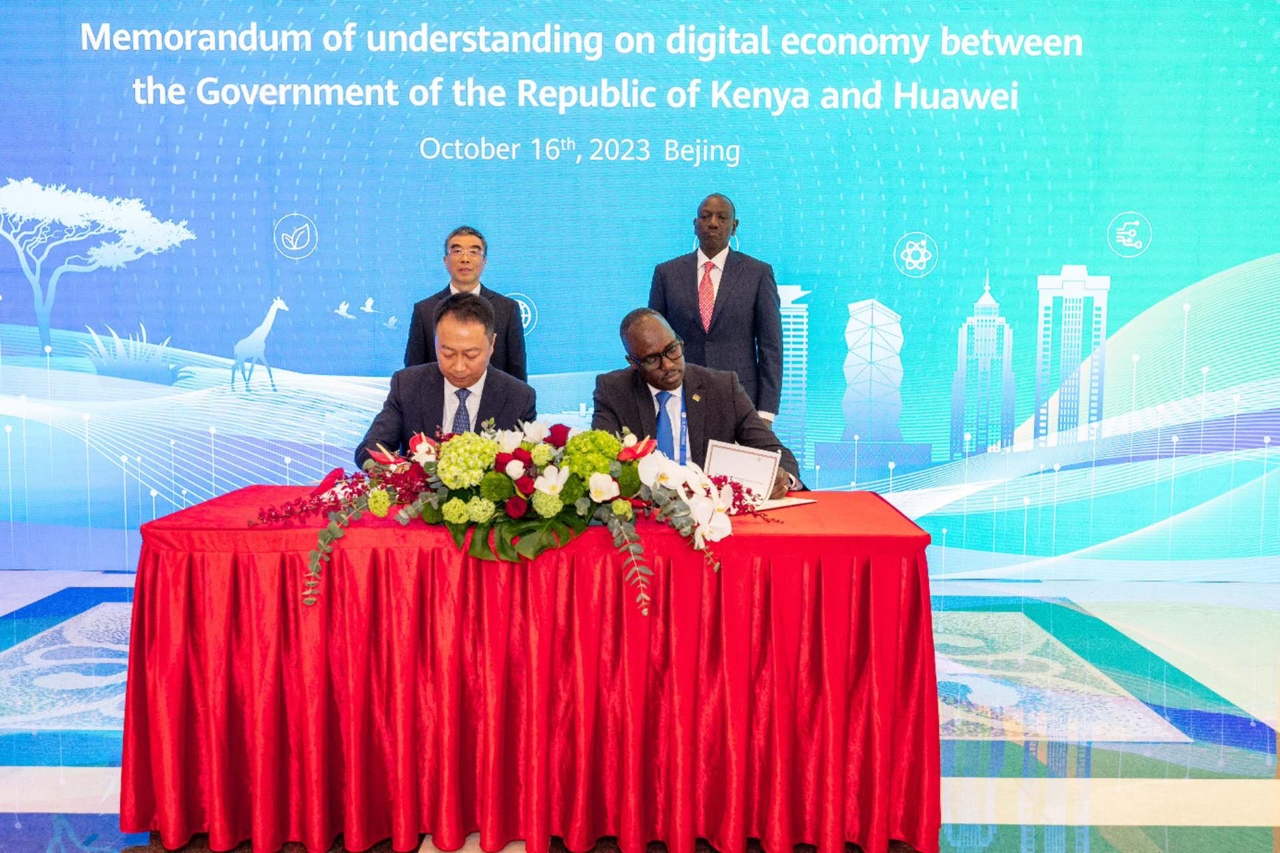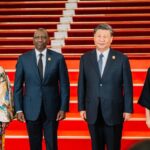Kenya this week sent a powerful delegation to China’s capital, Beijing, to attend the 3rd Belt and Road Summit. The delegation led by President William Ruto appears to have earned significant dividends for the country besides solidifying the already existing strong and dynamic friendly relations between Kenya and the world’s second-largest power.
With a mechanism (the Belt and Road Initiative) already in place for the two countries and others to engage meaningfully, its impact hasn’t gone unnoticed. When the President and his team set off for the forum, the real effect of their trip wasn’t all clear. However, as was witnessed shortly after they set foot on Chinese soil, a lot of good was awaited. Once again, Beijing proved to be a good “hunting ground” for Kenya and Africa with landmark deals announced courtesy of the Chinese-sponsored development mechanism.
Just like in the previous two forums, another landmark declaration was made public when President Xi Jinping announced the establishment of a RMB 350 billion financing window for BRI community through the China Development Bank and the Export-Import Bank of China. He said an additional RMB 80 billion will be injected into the Silk Road Fund. Together, these funds will support BRI projects on the basis of market and business operation.
What’s more, cooperation agreements worth USD 97.2 billion have been concluded at the CEO Conference held during the Forum and Kenya is among the biggest beneficiaries.
Among these deals, Chinese firm Zhende Medical Co., announced that it is entering a deal to invest $125 million in Kenya’s Tatu city project. The company’s entry to Kenya is timely for the reason that it arrives in the country when the government is racing towards realization of the Universal Health Coverage, hence providing a much-needed boost.
As per Kenya government sources, some 11 companies have already invested in the Konza Medical City, with an estimated $161.7 million special purpose investment vehicle.
As a result of Kenya-China cooperation through Belt and Road, it was further disclosed that a number of other Chinese enterprises such as Inner Mongolia Mingxu Electric Power Engineering Co. Ltd, Dongfeng Venucia Automobile Co. Limited, Guangdong Qiya Exhibition Co. Ltd, and Gaochuang Import and Export Co. Ltd, have expressed their strong intent to invest in Kenya to the tune of $4.32 billion.
China Energy International Group in the meantime agreed to come in and help Kenya increase reliability, efficiency and modernization of the country’s power infrastructure and systems.
During the China-Kenya investment meeting that took place ahead of the forum, Ksh.63 billion worth of deals were signed.
Chinese Ambassador to Kenya Dr Zhou Pingjian has constantly spoken about the willingness by many Chinese enterprises to set up base in Kenya, for the benefit of the country.
These Chinese companies are joining the over 400 hundred other Chinese enterprises that have established operations in Kenya, employing more than 60,000 locals, thanks to BRI. The jobs have contributed to poverty reduction and improved the livelihoods of local communities. These enterprises have invested in critical sectors such as energy, construction, manufacturing and telecommunications.
The latest deals, midwifed by the China Council for the Promotion of International Trade, will no doubt contribute to economic growth and development of the East African country.
This shows that China’s business community is fully adapted to Kenya’s immense potential. Besides, the deals further demonstrate that these investors have strong faith in China’s visionary Belt and Road Initiative.
The forum provided an opportunity for Kenya and China to launch what they described as “the next phase of our country’s socioeconomic transformation,” which shall be driven by trade and investment. Courtesy of this assistance from China, Kenya is optimistic that opportunities are about to multiply exponentially.
And as the country seeks to leverage innovation to grow its economy, the role of Chinese companies in introducing advanced technologies and technical expertise in telecommunications, renewable energy and manufacturing, which have enhanced Kenya’s overall capacity and promoted increased innovation, cannot be overemphasized. Investments in the sector have been made a priority. Ruto’s government sees opportunities in Digital economy that can help catapult Kenya’s economy.
This is why the signing of Memorandum of Understanding between the government of Kenya and China’s Huawei in China this week is also crucial. The MoU with China’s tech giant provides for the two parties an avenue to collaborate to further develop the ICT infrastructure in Kenya and promote the digitization of various sectors of the country such as transportation, e-government, education and digital energy.
Again, courtesy of Chinese support Kenya’s port, air, rail and road connectivity have greatly developed making the country a vantage point from which foreign traders and investors can access the rest of East and Central Africa and the continent at large. Building and upgrading these infrastructures has enhanced connectivity, reduced transportation costs, and boosted trade and economic activities.
The move by the Chinese companies to sign off major deals demonstrates leadership of President Xi, who proposed the creation of Belt and Road, and the emergence of a China as a country that is able, ready and willing to champion and act as a force of good throughout the world.
BRI provides a foundation for Kenya and Africa to step into the next phase of development to be powered through modernization, and technology. Kenya is presently anchoring this agenda on a Bottom-Up Economic Transformation Agenda in a bid to reduce poverty, ensure food security, increase incomes, create jobs, accelerate industrialization, promote micro, small, medium-sized enterprises and boost Kenya’s export competitiveness.
President Ruto’s administration is keen to establish aggregation industrial parks across all the 47 counties and China with its experience and proven track record in this regard can help in the realization of this agenda. This is particularly the case because under the BRI agenda, China has undertaken to support economic diversification in African countries by promoting industries beyond traditional sectors, such as agriculture and natural resources.
Collaboration with Chinese companies often involves technology transfer, and this is crucial for setting up of these industrial parks because it will pave way for the adoption of advanced technologies and manufacturing processes. This knowledge transfer can boost these local industries and improve their competitiveness.
President Xi went ahead to announced that China will carry out 1,000 small-scale livelihood assistance projects, and enhance vocational education cooperation through Luban Workshops and other initiatives thus providing a shot in the arm to the establishment and operationalization of aggregation industrial parks.
The forum was also an opportunity for President Ruto to affirm friendship with Beijing by reiterating that China is Kenya’s valued partner in development journey even as he undertook to ensure the two countries will stay the course of partnership and cooperation for mutual benefit.
Over the years, Kenya has received considerable support from the government of China, including development assistance in the form of grants, concessional loans and various forms of development cooperation. Events of this week confirm that Chinese investments and financing for BRI projects will most importantly continue to provide much-needed capital for development.
The opportunities for Kenya and other African countries that now form part of the Belt and Road community are aplenty. Crucially, BRI is aligned with Kenya and Africa’s long-term development goals and promote sustainable and inclusive growth.
Eric Biegon is a Multimedia journalist at the Kenya Broadcasting Corporation.





